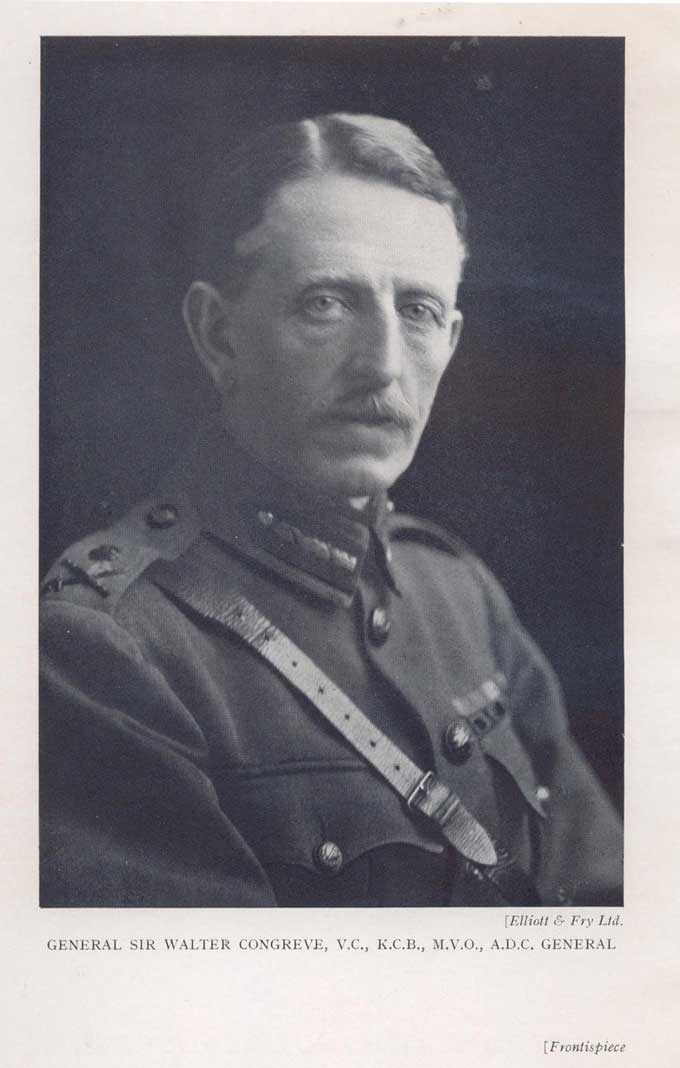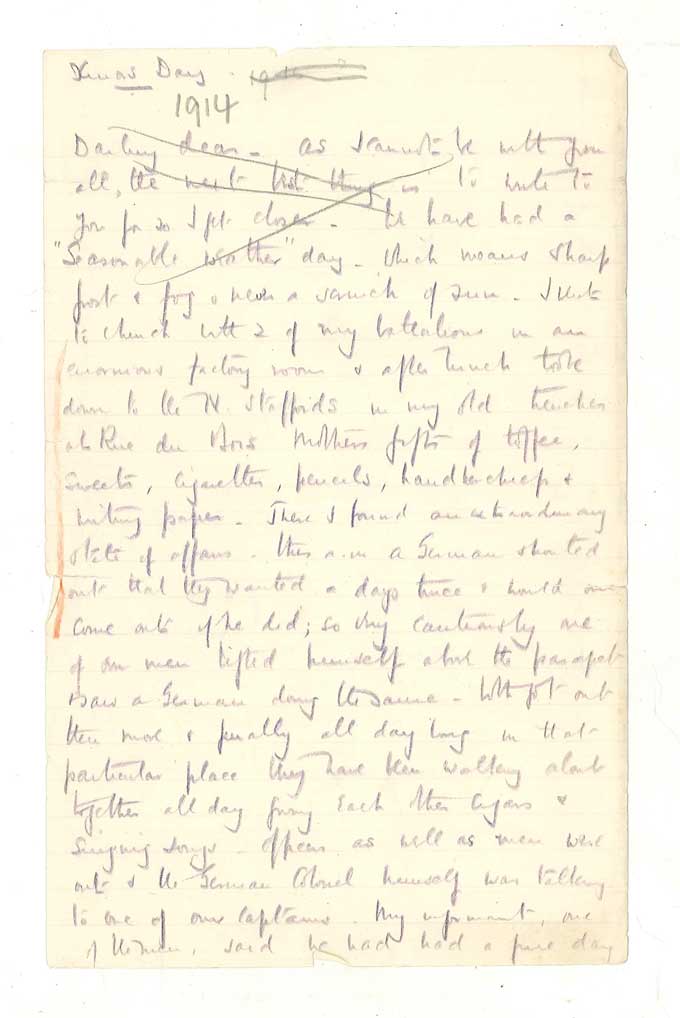A rare, never seen before letter describing the 1914 Christmas Truce uncovered by Staffordshire County Council’s Archives Service

A previously unseen letter documenting the historic 1914 Christmas Truce on the very day it happened is to be put on display by the Staffordshire County Council’s Archive service on Thursday 4 December 2014 at 12 noon, with the Duke of Cambridge due to visit on Friday 12th December.
Written by the high ranking General Walter Congreve VC on during WWI on Christmas Day 1914, the letter, addressed to his wife, describes the extraordinary circumstances of the famous football match and laying down of arms. Soldiers sharing cigars, singing songs and walking about together in No Man’s Land, plus the talk of the trenches – word of a football match between German and British troops having taken place earlier that day further along the lines – are all recorded first-hand in this rare and incredible historical treasure.
Congreve, who led the Rifles Brigade, was at British Headquarters near Neuve Chapelle in Northern France and in his letter, he recalls how it was the Germans who had called for a day’s truce. It began when one of his men bravely came out of the trenches to agree to it and eventually a British Captain is said to have talked with the German Colonel and “smoked a cigar with the best shot in the German army”, a lad of no more than 18 years old.
Congreve also talks of his personal reluctance to join in the truce, for fear of the Germans not being able to resist a shot at him because of his rank as a General. The Christmas Truce is believed to have been in place from Christmas Eve for around 48 hours, although in some sections of the line it is reported to have lasted much longer. The 1st North Staffords were in the Rue du Bois area in a section of trench known as ‘Dead Man’s Alley’ from December 11th to December 31st.

The letter will be revealed in the Chapel at the National Memorial Arboretum in Alrewas, Staffordshire and will be read out by a costumed WWI interpreter, before being placed on display with photo opportunities available. And the Duke of Cambridge will be paying a visit as he attends the Football Remembers Memorial dedication honouring the Christmas Truce story at the National Memorial Arboretum.
General Walter Norris Congreve was born on 20 November 1862 to parents William and Fanny E Congreve from Stafford. Congreve and his son Major William La Touche Congreve both received the Victoria Cross, making them one of only three father and son pairs to be awarded the honour. The letter was recently donated to Staffordshire’s Archives Service by members of the Congreve family.
Cllr Ben Adams, Cabinet Member responsible for Archives at Staffordshire County Council said: “The 1914 Christmas Day Truce is one of the iconic memories of World War One and to have such a detailed account from a high ranking officer, written on the actual day is a real gem.
“The fact that the letter has come to light in the year we commemorate the centenary of the Great War makes its existence even more special. We are incredibly proud to be the custodian of such a valuable document which we will protect and preserve so it can be shared and enjoyed by generations for years to come.”

Transcript of the letter:
Xmas Day [1914]
Darling dear – as I cannot be with you all, the next best thing is to write to you for so I get closer.
We have had a “seasonable weather” day – which means sharp frost & fog & never a smich [smidge?] of sun. I went to church with 2 of my battalions in an enormous factory room & after lunch took down to the N. Staffords in my old trenches at Rue du Bois Mother’s gifts of toffee, sweets, cigarettes, pencils, handkerchiefs & writing paper.
There I found an extraordinary state of affairs – this a.m. a German shouted out that they wanted a day’s truce & would one come out if he did; so very cautiously one of our men lifted himself above the parapet & saw a German doing the same. Both got out then more & finally all day long in that particular place they have been walking about together all day giving each other cigars & singing songs. Officers as well as men were out & the German Colonel himself was talking to one of our Captains.
My informant, one of the men, said he had had a fine day / of it & had “smoked a cigar with the best shot in the German army, then not more than 18. They say he’s killed more of our men than any other 12 together but I know now where he shoots from & I hope we down him tomorrow”.
I hope devoutly they will – next door the 2 battalions opposite each other were shooting away all day & so I hear it was further north, 1st R.B. playing football with the Germans opposite them – next Regiments shooting each other.
I was invited to go & see the Germans myself but refrained as I thought they might not be able to resist a General.
Frank Lyon came over this p.m. & brought me a note book from John & the enclosed letter from Henry Wilson to whom you can write your thanks. Tom Holland, looking very tall & gaunt, came to lunch with me yesterday. He also is at General Hd. Qtrs. He was just like his pleasant self…
Download BRITAIN Magazine to your mobile today

 No mobile device? Purchase directly on Zinio for your desktop!
No mobile device? Purchase directly on Zinio for your desktop!






 © 2024
© 2024